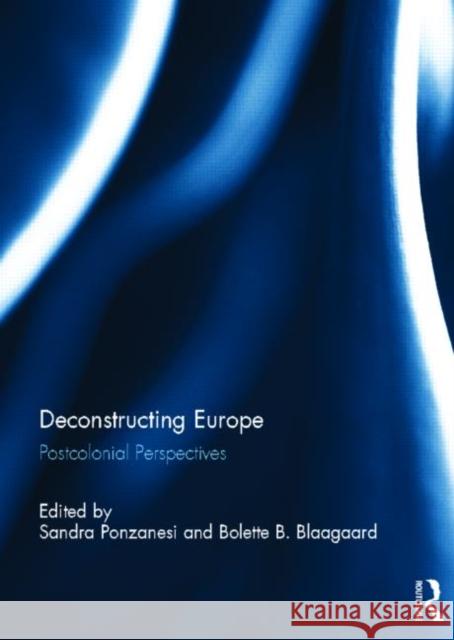Deconstructing Europe : Postcolonial Perspectives » książka
Deconstructing Europe : Postcolonial Perspectives
ISBN-13: 9780415690041 / Angielski / Twarda / 2011 / 184 str.
Deconstructing Europe : Postcolonial Perspectives
ISBN-13: 9780415690041 / Angielski / Twarda / 2011 / 184 str.
(netto: 444,89 VAT: 5%)
Najniższa cena z 30 dni: 428,13
ok. 16-18 dni roboczych.
Darmowa dostawa!
This book engages with the question of what makes Europe postcolonial and how memory, whiteness and religion figure in representations and manifestations of European 'identity' and self-perception. To deconstruct Europe is necessary as its definition is now contested more than ever, both internally (through the proliferation of ethnic, religious, regional differences) and externally (Europe expanding its boundaries but closing its borders). This edited volume explores a number of theoretical discussions on the meaning of Europe and proposes analyzing some of the deeds committed, both today and in the past, in the name of Europe by foregrounding a postcolonial approach. To deconstruct Europe as a postcolonial place does not imply that Europe's imperial past is over, but on the contrary that Europe's idea of self, and of its polity, is still struggling with the continuing hold of colonialist and imperialist attitudes. The objective of this volume is to account for historical legacies which have been denied, forgotten or silenced, such as the histories of minor and peripheral colonialisms (Nordic colonialisms or Austrian, Spanish and Italian colonialism) and to account for the realities of geographical margins within Europe, such as the Mediterranean and the Eastern border while tracing alternative models for solidarity and conviviality. The chapters deal with social and political formations as well as cultural and artistic practices drawing from different disciplinary backgrounds and methodological traditions. As such it creates an innovative space for comparative and cross-disciplinary exchanges. This book was previously published as a special issue of the journal Social Identities.











